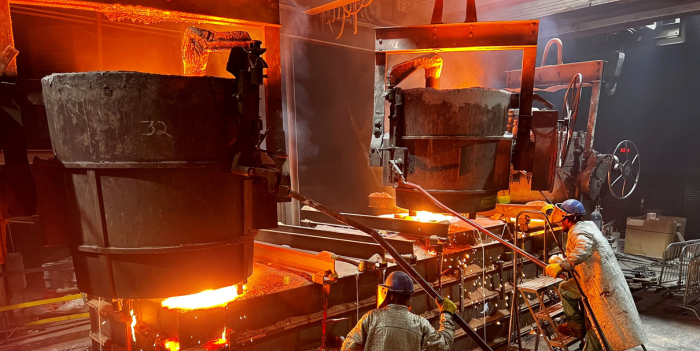
Plant-Based Meat Alternatives - Short-Term Fad or Industry Disruptor?
The popularity of plant-based meat alternatives has recently exploded as consumers are searching for healthier food options. The rise of these products has left consumers and investors noticeably curious about the potential shift in consumer behavior, with the launches of numerous plant-based meat products and the continuous news coverage surrounding it. In the last five years, most notably 2018-2019, these products have made their way into grocery stores, restaurants and major fast food chains nationwide. According to data from the Plant Based Foods Association, sales of plant-based meat alternatives in the U.S. grew 10% in the past year. Meat industry leaders, food scientists, nutritionists and consumers are all digging in to determine if this is indicative of a true coming industry shift or short-term fad that will be short lived. Are plant-based meat alternatives a viable and healthier choice that will stand the test of time and disrupt an entire industry? Or will genetically engineered meat products never be able to replace real meat?
The two key players in the plant-based meat market today are Beyond Meat and Impossible Foods. Beyond Meat, the front runner in the movement, had its initial public offering in May 2019 and the company’s market capitalization has since soared to over $10 billion. The flagship product of the company is the Beyond Burger, which has gained widespread media attention in the last year. The company also produces Beyond Sausage and Beyond Chicken. While Beyond Meat currently leads the pack, Impossible Foods is not far behind. Impossible Foods has raised $300 million in its latest funding round, valuing the company at over $2 billion dollars. Beyond Meat and Impossible Foods have both entered into the restaurant and fast food category with partnerships including Burger King (the “Impossible Whopper”), Qdoba, TGI Fridays, KFC and Carl’s Jr. among others. The plant-based meat products of Beyond Meat and Impossible Foods, are comprised of pea or soy protein as the primary ingredient and are branded as a healthier, vegan alternative to traditional meats, all while maintaining a similar taste and texture. These manufacturers have even gone as far as imitating “blood” with beet juice and other alternatives to further create the illusion that these products are the real thing.
Because these meat alternatives are plant-based, the debate on whether they are healthier than real meat exists among nutritionists and consumers alike. These plant-based products have ultra-processed ingredients including soy concentrates, isolates, oils, flavors and significantly higher sodium than regular natural meat products, particularly beef. Nutritionists have stated that these ultra-high processed “meats” can be healthy to substitute on occasion, but consumers should understand the downfalls (high saturated fat, highly processed, high sodium, etc.) and they should still be eaten in moderation. Chipotle CEO Brian Niccol remains highly skeptical of the plant-based meat alternatives trend. He believes consumers will shift to more plant alternatives in their diets, but they won’t necessarily be 100% committed to vegan or vegetarianism. Niccol has also historically criticized companies like Beyond Meat saying that their products are too processed to fit with Chipotle’s ethos.
Others argue that beyond the health benefits of eating less beef, when looking holistically, these products help address the global resource constraints, improve animal welfare and have a lower carbon footprint. Globally, animal agriculture is responsible for more greenhouse gases than all of the world’s transportations systems combined. The global resource constraints argument states we will not be able to keep up with the demand for meat products as the world population grows. The World Bank expects the global population to reach 11.2 billion by the year 2100, growing at a steady rate from the current population of 7.4 billion people. Plant-based meats can play a crucial role in helping meet the population’s protein demand. Overall, the debate around this industry will continue to evolve as the products are further refined and consumer preferences are tested. The growth in this industry demonstrates that perhaps there is a long-term viable market for these alternative meat products, and that they can play a vital role in sustaining the dietary needs of the global population if they can overcome some key obstacles.
Since the inception of these plant-based meat products, one of the largest obstacles for growth has been the significantly higher costs of producing these products. However, costs involved in the production process have continuously been declining each year due to manufacturing efficiencies and it is expected to reach more affordable levels by 2021. As production costs decline, particularly if the cost can translate to lower product costs than real meat, plant-based meat products will have a strong platform to further become a part of everyday life for consumers. This is a growth opportunity that the manufacturers are pushing to capture, and the long-term future success will largely depend on the ability to continue to lower production costs to improve margins and lower costs for consumers. Until then, the high production costs of plant-based meat products will be an obstacle to overcome and could ultimately inhibit the level of growth in the near future.
The dramatic growth of these plant-based alternatives is indicative of the excitement about opportunities for meat substitutes. The growth also suggests that these plant-based alternatives may have potential for significant industry disruption in a nation with a large population of meat-eaters (only 5% of people in the U.S. self-identify as vegetarians today). Since plant-based meats are still considerably more expensive, highly processed and have not entirely achieved the same taste and texture of real meat products, there is still significant progress to be made in the coming years. Ultimately, time will tell how successful this industry will become, but the macro-economic trends and recent growth indicate that there is large-scale potential for this industry to continue to thrive.
Related Professionals
Get in Touch
Tell us a little about yourself and we will get in touch as soon as we can.

 Back to news articles
Back to news articles



